MANK (2020)
The story of screenwriter Herman J. Mankiewicz's developing Orson Welles' iconic 1941 masterpiece Citizen Kane.
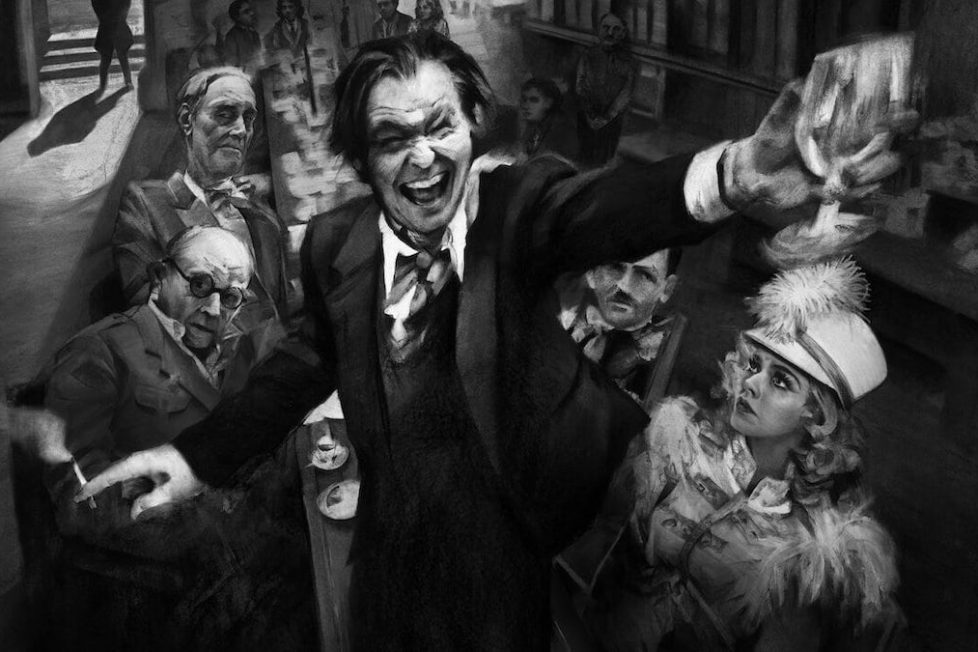
The story of screenwriter Herman J. Mankiewicz's developing Orson Welles' iconic 1941 masterpiece Citizen Kane.


To make a film centred around Citizen Kane (1941) is no easy feat. Orson Welles’ directorial debut is a giant of cinema and its enduring influence on filmmaking cannot be understated. The reason it’s still considered to be one of the greatest films of all time, if not the greatest, is down to its sheer cinematic power. If anyone was to tackle this subject, it figures that it should be one of the greatest directors of our time: David Fincher.
Mank tells the story of Herman J. ‘Mank’ Mankiewicz (Gary Oldman), a bedridden Hollywood screenwriter considered to be washed up until he’s approached to write a new script for Orson Welles (Tom Burke). Welles has full creative control of the project, thanks to RKO Pictures, so Mank decides to write a film à clef that draws from his experiences with Hollywood and media baron William Randolph Hearst (Charles Dance). But as Mank rushes to finish the screenplay, he descends further into alcoholism and comes into conflict with those who disapprove of his script’s subject matter.
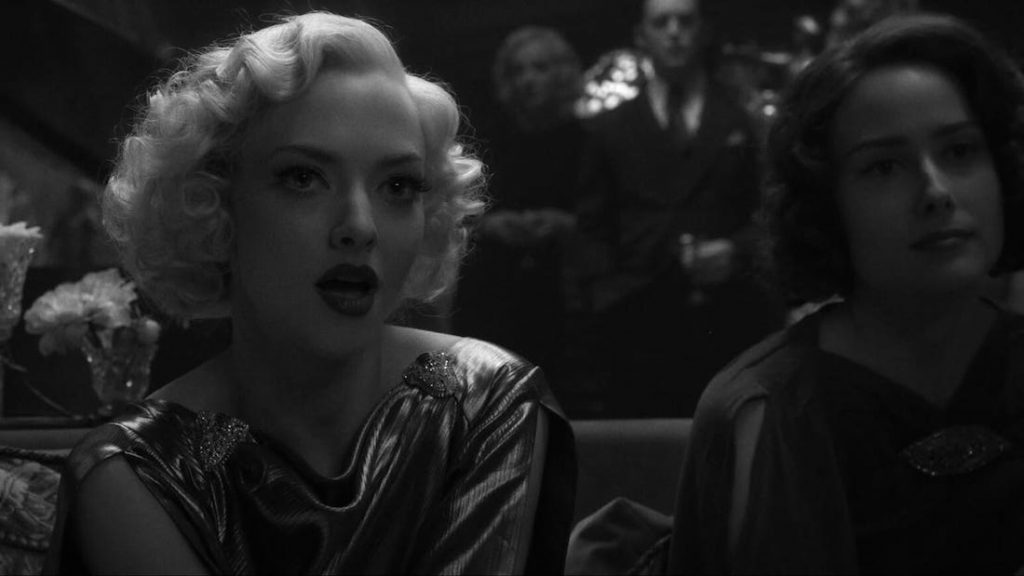
In creating Mank, Fincher’s willingly entered into a damned-if-you-do, damned-if-you-don’t situation. Die-hard Orson Welles fans will be incensed by the film’s assertion that Mankiewicz was the sole author of Citizen Kane, while those unfamiliar with Old Hollywood may need a history book to guide them through the narrative. However, Mank isn’t trying to be Citizen Kane, nor does it intend to be a factually accurate biopic. In fact, the inspiration for Mank’s screenplay, film critic Pauline Kael’s controversial essay Raising Kane, has since been widely discredited.
What Mank does intend to be is an ode to one of Old Hollywood’s most brilliant and quick-witted writers. For the most part, it succeeds in painting a compelling picture of Mankiewicz as a sentimental and dryly funny man with vices and gripes he can’t let go of, even when it leads to self-destruction.
Oldman’s bad habit of chewing scenery is thankfully curbed by Fincher’s direction: his performance has more in common with his understated role as Smiley in Tinker Tailor Soldier Spy (2011), rather than his grandstanding Churchill in Darkest Hour (2017). It’s an impressive and magnetic lead performance in which Oldman revels in dealing out acerbic put-downs whilst staying charming enough that one understands why he keeps getting invited back to parties.
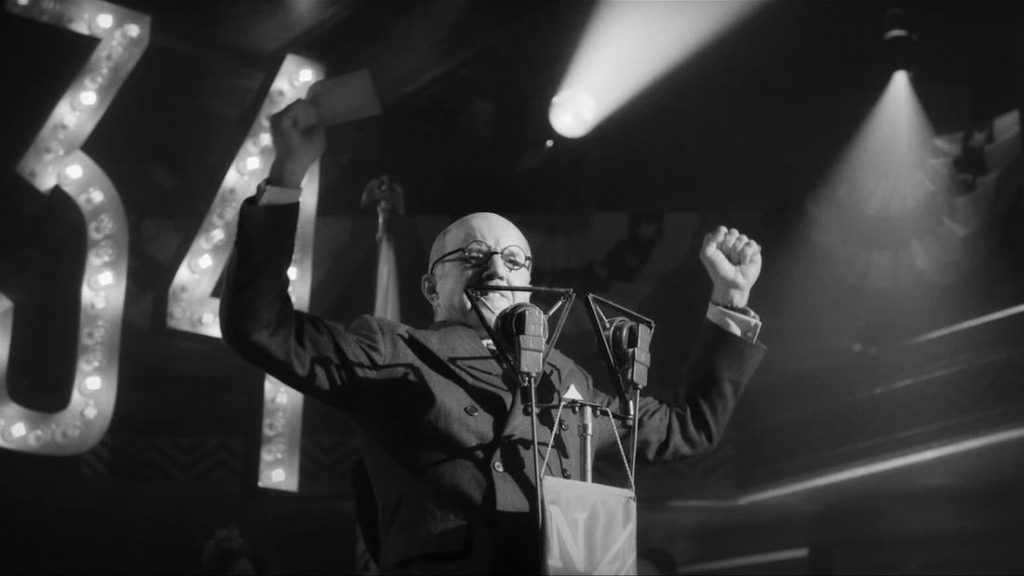
Much of Mank’s achievements are thanks to the screenplay, written by the director’s late father Jack Fincher, which beautifully intertwines the past of the 1930s with the present of the 1940s in a nod to Welles’ own non-linear storytelling. It’s sympathetic to Mank’s plight and to those understandably exasperated by his actions, but is also keen to point out the disingenuous nature of a film industry which rarely fulfils its grand promises.
This healthy cynicism prevents the film from being an overly glossy love letter to Old Hollywood, being equally fascinated and conflicted by its subject matter as Mank himself is with his own industry. There may be plenty of glamorous window dressing with the sumptuous costumes and opulent parties thrown by Hearst, yet the process of filmmaking is far from mythologised. The greed and hypocrisy of studio heads like MGM’s Louis B. Mayer (Arliss Howard) is constantly on display, whether it’s benefitting from the fruits of others’ labour without offering them a full pay-check, or refusing to give its writers screen credit.
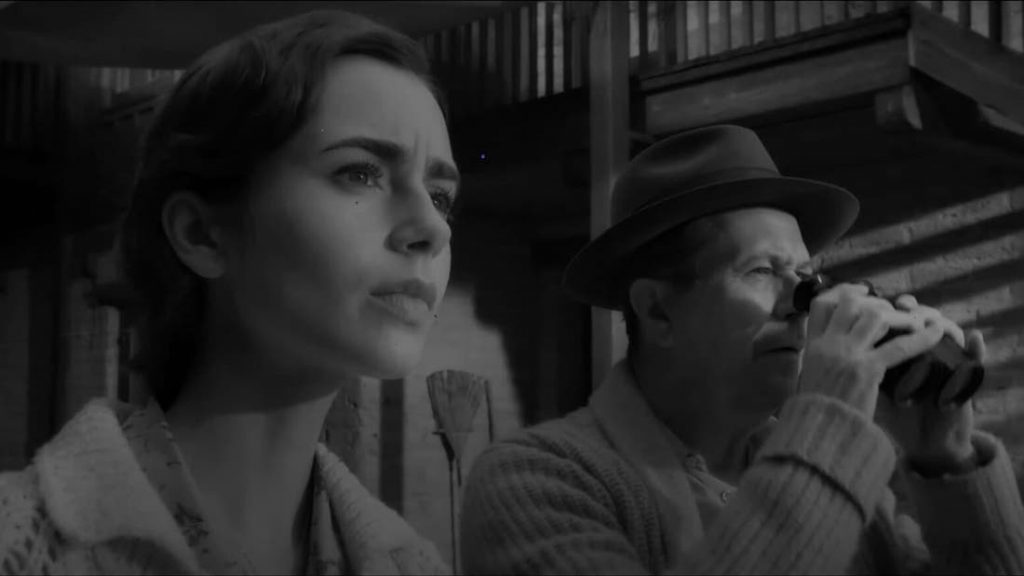
Mank is surprisingly interested in examining the politics of the period, particularly how Louis B. Mayer’s propaganda films cost democrat Upton Sinclair the 1934 California gubernatorial election. As stirring as this subject matter may be, the implications of this plot line lack a punch and end up feeling surface-level rather than urgent. It especially seems strange that Mankiewicz (a second-generation American whose works were apparently banned by the Nazis) isn’t shown to be more passionate about what’s going on around him.
Ultimately, the most charming element of the story is Mank’s relationship with Marion Davies (Amanda Seyfried), Hearst’s mistress and an actress who made the transition from silent films to “talkies”. The real Davies has been mostly forgotten in film history, besides being equated to Citizen Kane’s talentless showgirl character Susan Alexander Kane. Welles himself expressed regret over this portrayal for the damage it did to Davies’ reputation, later stating that they had played “a dirty trick” on her. Fincher and his father have rectified this with their portrayal of Marion as a smart and genuine starlet who’s humour and intellect equals Mank’s own. It’s delightful to watch the pair play off each other and Seyfried delivers what may be a career-best performance as the underestimated blonde bombshell.
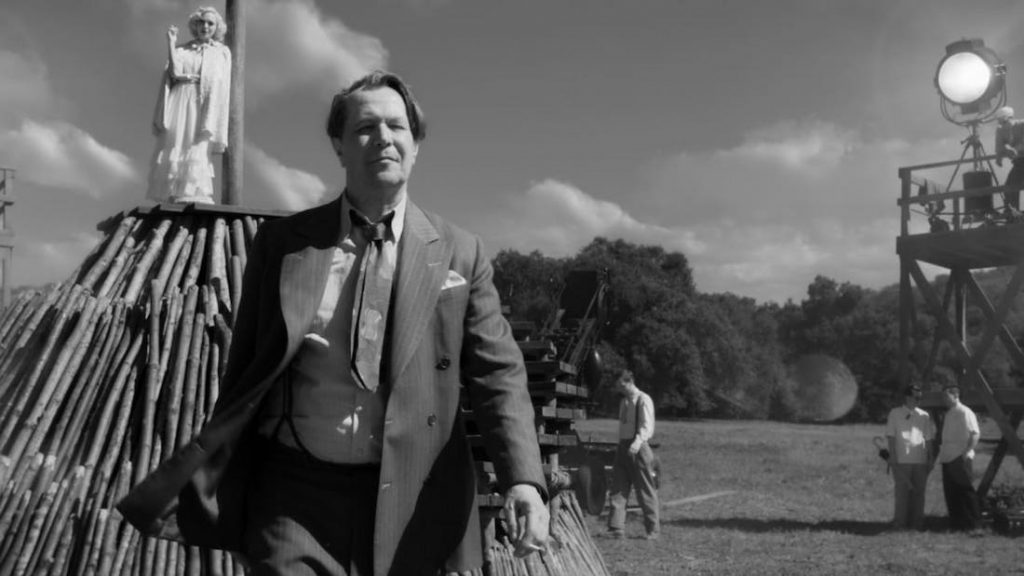
As for the direction, Fincher’s slick style is always present under the veneer of Old Hollywood filmmaking and Kirk Baxter’s smooth editing keeps the flow of Mank steady as it flips between periods. Erik Messerschmidt’s black-and-white cinematography is often lush and attractive to behold, although one has to wonder how much more depth and chiaroscuro could have been achieved by shooting on film rather than Fincher’s beloved digital. With this in mind, the cigarette burns added in post-production were particularly irksome in their attempt to recreate film photography’s texture. However, the choice of mono sound is more successful in capturing the retro feel of classic Hollywood filmmaking, as it sounds authentic without becoming too tinny.
Mank is a complex and curious companion to Citizen Kane, similarly creating a mythos of a man behind-the-scenes who creates something larger than himself. It’s an admirable experiment on Fincher’s part and, while not always successful in its fable of Old Hollywood, the film certainly pays tribute to those sidelined authors forgotten by studio heads. It may lack the power of the director’s earlier features but it is a mature and bold move forward by one of America’s finest.
USA | 2020 | 131 MINUTES | 2.20:1 | BLACK & WHITE | ENGLISH

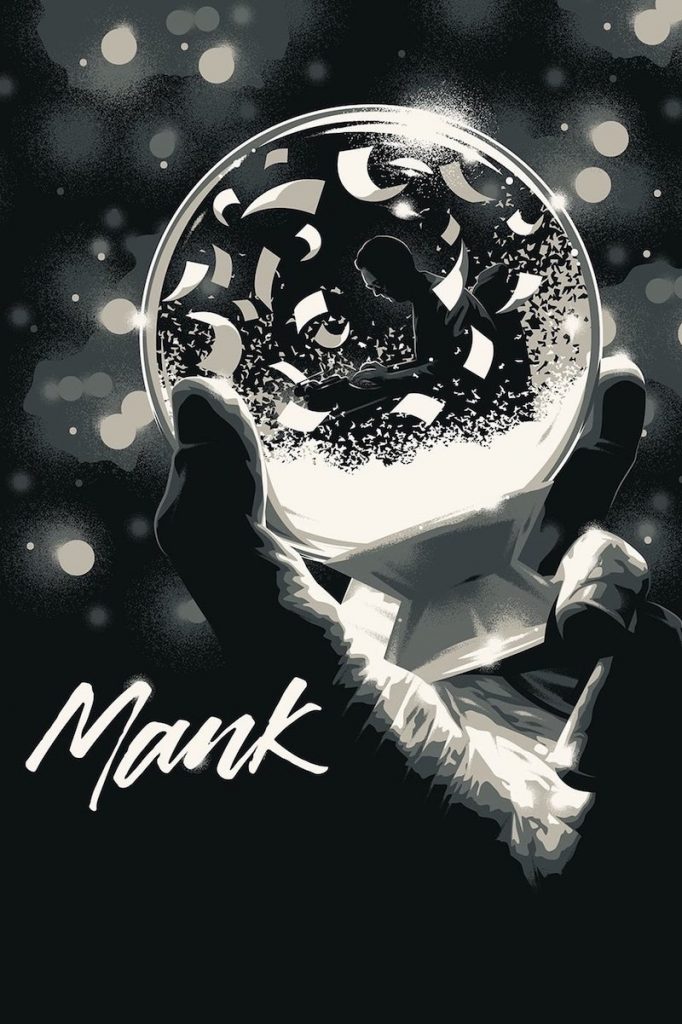
director: David Fincher.
writer: Jack Fincher.
starring: Gary Oldman, Amanda Seyfried, Lily Collins, Arliss Howard, Tom Pelphrey, Sam Troughton, Ferdinand Kingsley, Tuppence Middleton, Tom Burke, Joseph Cross, Jamie McShane, Toby Leonard Moore, Monika Gossmann & Charles Dance.
